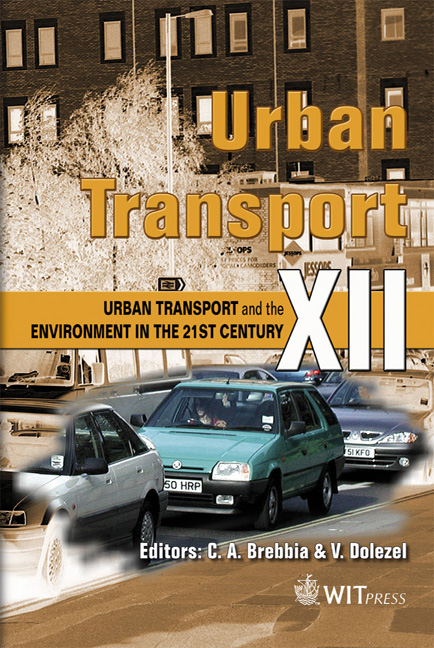External Transport Pricing And Modal Choice: Evidence From A Paris Case Study
Price
Free (open access)
Transaction
Volume
89
Pages
10
Published
2006
Size
459 kb
Paper DOI
10.2495/UT060871
Copyright
WIT Press
Author(s)
A. de Palma & N. Zaouali
Abstract
Many European studies have shown that prices paid by transport users do not cover the real cost of moving. Some costs related to pollution, congestion, noise and accidents are covered partially. The external costs caused by travel using public transport are lower than using cars. This deduction has pushed many authorities to encourage the transfer of passenger traffic from private car to public transport. The purpose of the present study is to estimate the impact of some external costs pricing on the commuters’ modal split between car and public transport. We have used two pricing schemes: exogenous toll and marginal social cost pricing. To put it into practice, we estimate Multinomial Logit (ML). On the other hand, ML has a critical assumption related to the Independence from Irrelevant Alternatives. In order to relax this property we recast the model as a nested structure. We simulate these prices’ scenarios through a Nested logit model. Therefore we estimate the choice probabilities, thus we calculate the welfare gains. The aim results of this paper indicate that prices paid by transport users must reflect marginal external costs (mec). For the exogenous toll, the welfare gains are relatively small. This finding is not surprising because taxes are below the mec. For the marginal social cost pricing, all taxes are corrected so as to equal the mec; the welfare gain is estimated at 0.61%. We can also notice that a part of the reduction in car use is due to its substitution for public transport. Keywords: external costs, pricing, modal choice, discrete choice models. 1 Introduction During these last decades many European studies on transport, green paper 1995 [1] and white paper 1998 [2], have shown that fees and taxes have been arbitrarily fixed. In fact, prices paid by the transport users do not cover the real
Keywords
external costs, pricing, modal choice, discrete choice models.





